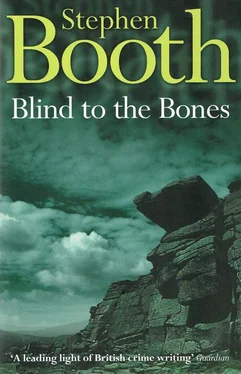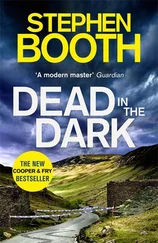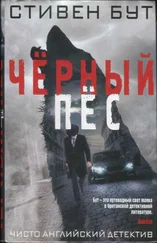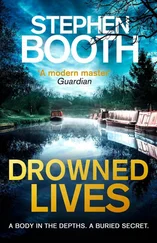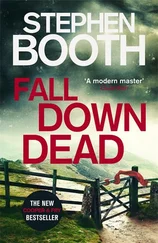Cooper introduced himself and asked about the moorland fire that had been burning since Friday night.
‘There are still a few patches smouldering under the surface,’ said the Ranger. ‘They might persist for another week or so. Some fires last for months in the peat, you know. We’re lucky it wasn’t a summer one. But that’s another few acres we’ve lost up there. With fires and erosion, we’ll lose the whole bloody landscape in a few years.’
‘Is it that bad?’
‘Have you seen the erosion recently? The moor is eroding, the sphagnum moss is dying, the peat is disappearing down to the bedrock.’
‘Yes, I know.’
Many thousands of pairs of feet were wearing tracks across the plateaux of the Dark Peak every year, and water running through hundreds of groughs and channels was washing away yet more peat. In places it had been scoured away down to depths of twenty feet, creating deep valleys in the black crust and washing the peat away year by year. It ran down into the water catchment area and into the reservoirs, where the water was brown and tasted peaty.
‘Acid rain is the real problem though,’ said the ranger. ‘Long term.’
‘Really?’
‘It’s been falling on us for decades — for centuries. It’s been falling on us ever since the factories in Manchester began to belch out their pollution over there. The prevailing wind blows all the pollution in this direction, and it falls in the rain when it reaches high ground. It’s the acid rain that’s killed the moss. And it was the moss that bound the surface. Now the moss is gone and the peat is exposed, so it gets washed away year by year, inch by inch. Eventually, the hills will be nothing but bare rock. No more banks of purple heather in the summer, no sheep, no grouse, no songbirds. No wildlife of any kind. That’s what acid rain means to us.’
‘The moors are a sitting target, I suppose?’
‘Absolutely. It’s only a matter of time before they’re gone. And fires like this one don’t help. Some fourteen-year-old kid on a school outing from Manchester started it. We don’t know whether he was smoking a fag and dropped it, or whether he lit a fire deliberately, which is just as likely, in my view. But a fire takes days to put out and longer to damp down, and this one has already destroyed thirty acres of moor. Another thirty acres gone. Maybe the acid rain isn’t quick enough. Now Manchester is sending its kids out here to destroy the moors faster.’
‘Long-term damage, I suppose?’
‘I said “destroyed”, didn’t I? How long do you think it takes peat to form?’
Cooper shook his head.
‘Two hundred thousand years. Even presuming we’re still around after all that time, would we see new peat? Well, the fact is that peat forms from the undecomposed remains of — guess what? — sphagnum moss. No, when this peat is gone, there won’t be any more.’
‘Do you know Withens? There’s a family down there at Waterloo Terrace I’m interested in — the Oxleys.’
‘Don’t tell me about the Oxleys. Their kids like to set fires, just so they can hear the sirens and see the flashing lights as the fire appliances arrive. It breaks the boredom a bit. When we turn up, there’s always a little crowd of excited youngsters. The ones that started the fire are probably among the spectators. But we’re never going to be able to prove it.’
‘There’s a burnt-out house at the top of the road,’ said Cooper.
‘I remember that. It was empty for years and getting derelict. It had got so bad that nobody wanted to spend money on repairing it, I suppose. The local kids broke in and were using it. Then it started getting fires. We were called out there several times. Each time, there was a bit less of the building left. The roof fell in quite early on, and it wasn’t really considered dangerous any more after that. But it still got set on fire regularly. I reckon the kids were dragging bits of wood up there to burn, once all the beams and doors and window frames had gone up in smoke.’
‘Whatever happened to saving up the wood for bonfire night?’ said Cooper.
‘You’re joking. What century are you living in?’
‘It’s what we did when I was kid. And that’s only—’
‘Last century, I expect.’
‘Kids never did that where I lived,’ said Cooper. ‘They used to let other folk collect wood and pile up their bonfires, then they’d sneak in and set fire to them a few days before the fifth. They thought that was much more fun than collecting their own.’
The Ranger looked at him. ‘Do you have any children of your own?’
‘No.’
‘Let me know in a few years’ time, when you’ve managed it, and I’ll come and give them a talk about fire safety.’
‘Thanks a lot.’
The Ranger looked over Cooper’s shoulder and gestured at something behind him. ‘Well, look at him.’
Cooper turned and looked. It took him a moment to register what he was seeing. A small boy was walking past him, leaning forward to pull on a rope that was attached to a makeshift trolley. Its wheels rattled on the pavement as he passed. The trolley was full of sticks, perhaps a dozen of them, all a yard long and solid-looking.
‘Hold on, son,’ said Cooper.
But the boy was already a few yards past him and heading down the hill towards the Quiet Shepherd. He showed no intention of stopping.
Cooper began to walk behind him in the same direction. He noticed the limp in his left leg, and felt sure this was Jake Oxley.
‘Where are you going with those sticks?’
‘To the pub,’ said the boy.
‘What for?’
‘You’re a copper, aren’t you?’
‘Yes. What are you doing with those sticks?’
‘That’s my business. It’s not copper’s business.’
‘It might be. Tell me, and we’ll see. Where did you get the sticks from?’
The boy began to speed up as he approached the pub car park. The sticks bumped together and clattered as the trolley went over a kerb. Cooper lengthened his pace, aware of the ranger watching him.
‘Stop a minute, son. I want to ask you something else.’
‘You can’t talk to me,’ said the boy. ‘I’m only nine.’
‘So?’
‘It means you have to talk to my dad.’
‘And who’s your dad?’
‘I don’t have to tell you that. I don’t have to tell you anything. I’m only nine.’
Cooper noticed that the boy’s limp didn’t seem to hinder him.
‘Is your name Oxley, by any chance?’ he said.
‘I’ll report you to the Social Services. Then you’ll get in trouble. You’re not allowed to talk to me, because I’m vulnerable.’
‘And you’re only nine,’ said Cooper.
‘Yeah.’
The boy broke into a run across the car park and vanished into a side door of the pub. Cooper wasn’t going to run. He didn’t want to appear to be pursuing a nine-year-old child. It never looked good.
‘With any luck, you won’t make it to ten,’ he said to the closed door.
Then he looked at the hill he would have to walk back up. With a sigh, Cooper sat down on the low wall around the pub car park. The parking area consisted of a wide patch of crushed stone, and large boulders had been left in position near the entrance and exit. There was even an outcrop of rock right in the middle. He couldn’t figure out whether the rocks had been too big to bother moving when the car park had been created, or had been left there for picturesque effect.
Cooper noticed a building at the back of the pub. It was some kind of storage shed or garage, with wide doors that stood open at the moment. The interior looked intriguing.
He got up and strolled over towards the door, hoping no one was watching him from the windows of the pub. Inside the doors, trestles had been set up. At the moment, they supported wooden boards, much like the ones he had seen being fished out of the river a few days ago. If these were the same ones, they had been washed clean of slime and duckweed. They’d also had hundreds of nails hammered through them, so that the points protruded above the surface of the wood by a centimetre or so. Each board might have been a bed of nails for an Indian fakir, except that a layer of clay had been spread over the nails and smoothed out. A skin was starting to form on the clay.
Читать дальше
